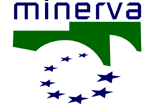| |
Coordination
of National Digitisation Policies
Status report for Greece
- Actions undertaken
-
The establishment of the Hellenic Digitization Project (October 2001). One of the project´s objectives and deliverables is to disseminate and promote, at a national level, the initiatives and progress of the NRG. In addition, specific deliverables will be generated regarding benchmarking, quality of cultural web sites and digitization technologies. These deliverables will be distributed to all interested cultural and technological organizations and institutions.
- The Hellenic Digitization
Portal. The portal was initiated in November 2001, in the framework
of the Hellenic Digitization Project (http://www.hdpweb.org)
and is constantly updated and maintained. An independent part
of the portal is dedicated to the European Initiatives for digitization.
Information relevant to the Lund Principles, the NRG workgroups,
the meetings, decisions and council resolutions is published
and updated.
- The Hellenic Digitization
Committee (HDC) (November 2001). The HDC has assumed a specific
role for digitization and carries out important coordination
and practical activities. The Committee is also informed about
the NRG initiatives and related actions (more information on
HDC is presented in Section 2). An overview of the work of the
NRG has been presented in two meetings (November 2001 and February
2002) of the HDC. More than 25 people from the Hellenic Ministry
of Culture (representatives of the directorates), Cultural and
Technological Institutions and Universities were participating.
The decisions and presentations can be found on-line at http://www.hdpweb.org.
-
The Master Plan (first draft) for Digitization of Hellenic Cultural Heritage was submitted to the Minister of Culture in February 2002. A chapter of this Master Plan is dedicated to the NRG main actions and results. The Master Plan is establishing the conditions for future large-scale nationwide digitization activity.
-
The NRG initiative was presented at the conference "Interactive Museum Tele-Presence Through Robotic Avatars", held in Athens at 4-7 December 2001. There were more than 400 people from various kinds of organizations present.
-
The 1st Benchmarking Practice was conducted from February to March 2002. A total of 34 projects have contributed to the practice and the Benchmarking Report was submitted to the Benchmarking Group.
-
An event is planned for 1 July 2002 at Santorini Greece. The event is entitled "Digital Cultural Content: The European Approach". Interesting discussions about European Initiatives and the NRG are included and R&D papers and demos will be presented.
-
At November 2002 a conference is being organized to disseminate the NRG coordination trial and present the digitization activity in Greece. Many significant personalities from Greece and Europe are expected to participate.
-
An official document is being prepared and will be submitted to the Minister of Culture in the near future regarding main lines of actions during the Greek Presidency 2003, especially for adopting and continuing the work of the NRG.
-
The Minister of Culture is regularly informed, through report submission and briefings, on the NRG and European initiatives on digitization.
- Institutions and people involved
-
The Hellenic Digitization Committee (the role of which is described above). The HDC is presided by the HPCLAB of the University of Patras. The HDC consists of:
-
General Directors or Directors of key agencies of the Hellenic Ministry of Culture, namely:
-
General Directorate of Antiquities.
-
Directorate of Prehistoric and Classical Antiquities.
-
Directorate of Byzantine and Post-Byzantine Monuments.
-
Directorate of the Archive of Monuments and Publications.
-
General Directorate for the Restoration, Museums and Technical Works.
-
Directorate of Fine Arts.
-
Directorate of Folk Culture.
-
Directorate of Greece-European Union Relations.
-
Hellenic Intellectual Property Organization.
-
Private Sector
-
Hellenic Cultural Heritage S.A. (supervised by the Hellenic Ministry of Culture).
-
The Information Society Directorate (supervised by the Hellenic Ministry of Economy and Finance).
-
Greek Universities incorporating various research laboratories with valuable previous experience on implementing successful digitization projects.
-
University of Patras.
-
University of Crete.
-
University of the Aegean.
-
Aristotle University of Thessaloniki.
-
University of Macedonia.
-
University of Thrace.
-
Fruitful cooperation has been established with the Hellenic Ministry of Culture and most of its Directorates.
-
Cooperation in a regular basis has been established with the Permanent Representation of Greece in the European Union.
-
There is close cooperation with more than 10 Greek Universities and technological laboratories with experience in digitization projects.
-
Regular contact is maintained with the Greek Information Society Directorate, through the Hellenic Digitization Committee and briefings.
- National Network development
-
The Hellenic Digitization Committee is considered as the first National Digitization Network.
-
An open Digitization Network is under development. Institutes and Organizations of the public and private sector will be invited to declare their interest. The aim of the network is to attract and coordinate organizations from various cultural and technological sectors.
-
The Project Selection Workgroup was established in February 2002 within the HDC and consists of key members of the Hellenic Digitization Committee. The main objective of the Workgroup is to define the digitization priorities for Greece and select the main digitization projects relevant to the Hellenic Cultural Heritage.
- Problems and suggestions
- An official national
policy for digitization and digital preservation is not yet
defined. The Hellenic Digitization Committee has the authority
and is expected to submit specific proposals to the Minister
of Culture within the year 2002. A draft national digitization
policy under development is on-line at http://www.hdpweb.org.
-
Although funding opportunities are intensively analyzed and specific budgetary details are being defined there is not yet a confirmed source of funding for future digitization projects.
-
Experience strongly suggests that in order to overcome several key problems it is necessary to advance specific projects and actions that will generate momentum, through practical results.
- Priorities for future strategy for the NRG
Contact Person: Dimitris K. Tsolis
Deputy National Representative at the NRG
Contact points:
e-mail: [email protected]
Work: +30 610 993805
Fax: +30 610 997706
http://www.hpclab.ceid.upatras.gr
|
|
|


